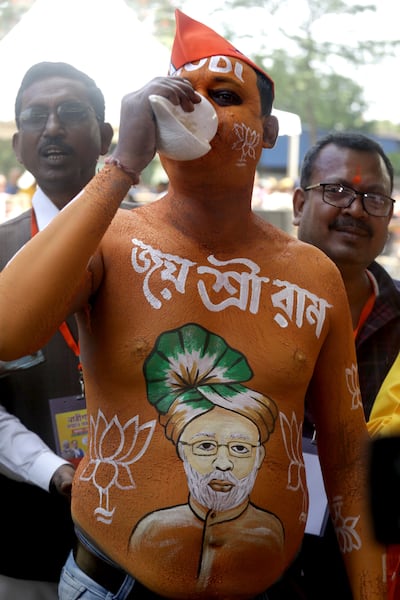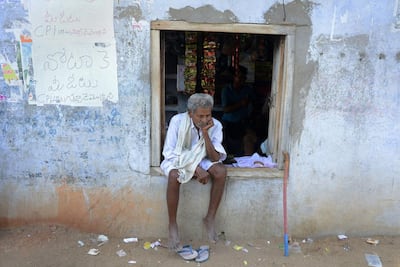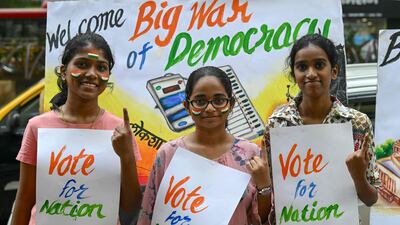Hundreds of millions of voters in India will begin casting their ballots on April 19 in a seven-phase general election that continues until June 1, the Election Commission announced on Saturday.
India holds elections for the 543-seat lower house of Parliament, the Lok Sabha, every five years. Around 970 million people are eligible to take part this year, the Election Commission said.
Voting will stretch over seven phases, with different states voting at different times, and the results will be announced on June 4.
The electorate includes 18 million voters who have just become eligible to take part after turning 18 and 197 million people aged between 20 and 29. There are also nearly 18 million in their eighties or older, including 218,000 centenarians.
“It is our promise to deliver a national election in a manner that we add to our global shine and remain a beacon for electoral democracies across the world,” Rajiv Kumar, Chief Election Commissioner, said at a press conference.
“We are committed to give the nation a truly festive democratic environment,” he said.

Prime Minister Narendra Modi and his Bharatiya Janata Party are seeking their third consecutive term in power, facing a challenge from the main opposition Indian National Congress and six other national parties.
A political party or an alliance of parties needs 272 seats to form a government.
More than 1.5 million polling booths will be set up across the 28 states and eight federally ruled territories across the country, manned by over 15 million election personnel, including security forces.
“They are the sentinels of democracy. Wherever it takes, they will walk an extra mile so that voters don’t have to walk … whether it is snow-capped mountains, forests, through rivers or by mules and helicopters, they will reach the voters,” Mr Kumar said.
Each election phase will last one day, with several constituencies voting that day. The staggered polling allows the government to deploy troops to prevent violence, and transport election officials and voting machines.
Voters cast their ballots on electronic voting machines by pressing a button next to the name and electoral symbols of their preferred candidate. There is also the option of “None of the Above” in case they do not like any of the candidates or parties in the fray.
Voters above the age of 85 or with 40 per cent disability have the option to vote from home.
The announcement of the poll dates puts into force the nationwide Model Code of Conduct – rules for political parties and their candidates during campaigning and polling.

The Model Code bars ministers and the authorities from making major policy and administrative changes, announcing financial grants or launching projects, to avoid influencing the result of the polls.
India’s constitution allows the government to remain in office while the elections are held.
“We are committed to ethical political discourse. We have issued strong [advisories] to political parties to make statements that inspire rather than divide, avoid private life criticism and misleading advertisements,” Mr Kumar said.
He also announced that state assembly elections would be held simultaneously in Sikkim, Odisha, Arunachal Pradesh and Andhra Pradesh.
Mr Modi, 73, has claimed that his party will win more than 400 seats in parliament.
The BJP won 303 seats in the 2019 election while the Congress, which has ruled India for most of the country's seven decades since independence, managed only 52.
The “lotus is going to bloom”, Mr Modi said at a public rally on Friday, referring to his party's electoral symbol.
Rahul Gandhi, the Congress leader, has also been campaigning aggressively.
He launched his Bharat Nyay Yatra, loosely translated as “India Justice Rally”, that began in January in strife-torn Manipur state, in the remote north-east, and ends on Sunday in the western coastal city of Mumbai, India's financial hub.


